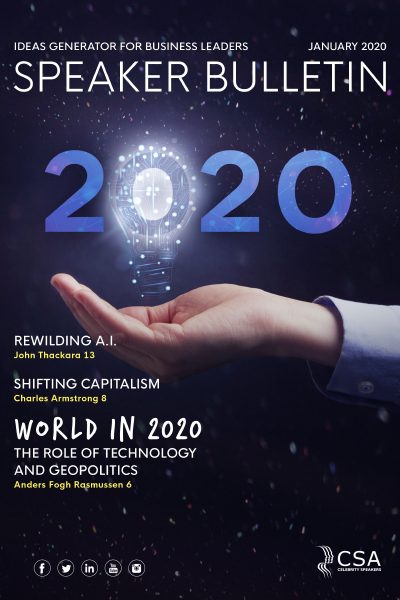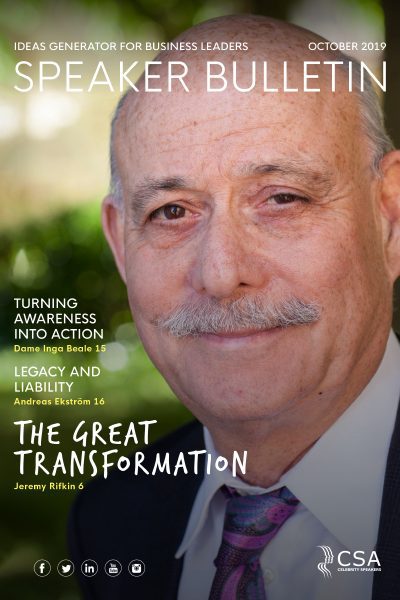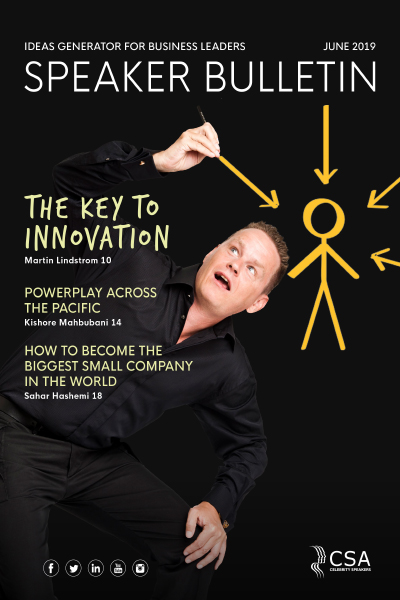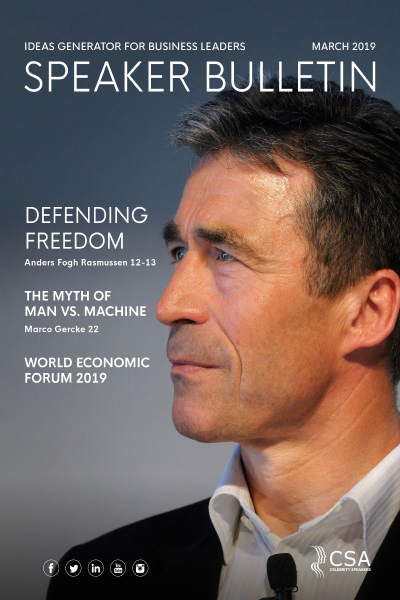News
Recent Articles
Noreena Hertz Keynote Speaker: The New AI Anxiety
5th November 2025
Noreena Hertz is a renowned economist, speaker, bestselling author, and strategic thinker whose work focuses on the great forces shaping our world: technology, globalisation, and the anxieties of modern...
Richard van Hooijdonk: Catalysing the AI-First Transformation
31st October 2025
In an era of relentless technological change, the crucial challenge for any firm is inspiring its people to look past the immediate present and actively shape their future. Booking...
Allister Frost: Be ReadyAlready for What’s Next
9th September 2025
Our lives are moving faster than ever. Change is relentless. And for many teams, it feels exhausting. That’s why CSA Celebrity Speakers is proud to showcase Allister Frost —...
Anders Sorman-Nilsson: How to Catalyse Real Transformation
18th July 2025
Anders Sorman-Nilsson is a world-renowned keynote speaker, futurist and innovation strategist who helps leaders decode trends and turn them into a competitive advantage. As the founder of the think...
Legacy is a Liability: A Thought from Andreas Ekström
1st July 2025
In a world hurtling towards the future, we often look to figures like Andreas Ekström—the acclaimed Swedish journalist, author, and keynote speaker—to help us navigate the complexities of our...
Jim Lawless: AI & The DARE Model for Adaptability
9th June 2025
Jim Lawless, CEO of Taming Tigers, is one of the most inspirational and highly sought-after keynote speakers in Europe. He is the only authority on change and personal development...
Afshin Molavi: Navigating Tariffs in an Evolving World
2nd May 2025
A prominent geopolitical keynote speaker, Afshin Molavi is a Senior Fellow at the Johns Hopkins SAIS Foreign Policy Institute. He also co-directs the emerge85 Lab, a joint initiative focused...
Celebrating International Women’s Day with Inspiring Speakers
Every year on 8th March, International Women’s Day (IWD) shines a light on the achievements of women around the world. It’s a day to celebrate progress, challenge inequalities, and...
Celebrate the Olympic Spirit with Inspiring Olympian and Paralympian Speakers
3rd September 2024
The Paris 2024 Olympics left us all in awe, showcasing the very best of human achievement. The passion, perseverance, and excellence demonstrated by these athletes are not just traits...













 Visit us in Burnham
Visit us in Burnham